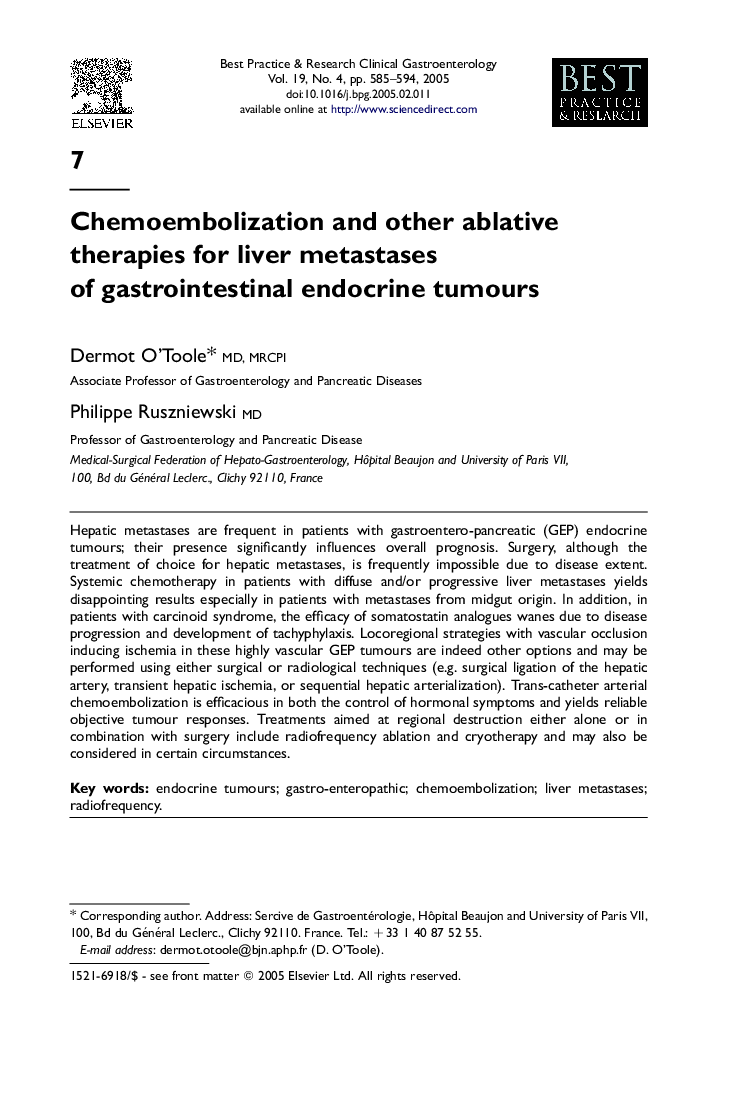| Article ID | Journal | Published Year | Pages | File Type |
|---|---|---|---|---|
| 9236398 | Best Practice & Research Clinical Gastroenterology | 2005 | 10 Pages |
Abstract
Hepatic metastases are frequent in patients with gastroentero-pancreatic (GEP) endocrine tumours; their presence significantly influences overall prognosis. Surgery, although the treatment of choice for hepatic metastases, is frequently impossible due to disease extent. Systemic chemotherapy in patients with diffuse and/or progressive liver metastases yields disappointing results especially in patients with metastases from midgut origin. In addition, in patients with carcinoid syndrome, the efficacy of somatostatin analogues wanes due to disease progression and development of tachyphylaxis. Locoregional strategies with vascular occlusion inducing ischemia in these highly vascular GEP tumours are indeed other options and may be performed using either surgical or radiological techniques (e.g. surgical ligation of the hepatic artery, transient hepatic ischemia, or sequential hepatic arterialization). Trans-catheter arterial chemoembolization is efficacious in both the control of hormonal symptoms and yields reliable objective tumour responses. Treatments aimed at regional destruction either alone or in combination with surgery include radiofrequency ablation and cryotherapy and may also be considered in certain circumstances.
Related Topics
Health Sciences
Medicine and Dentistry
Endocrinology, Diabetes and Metabolism
Authors
Dermot (Associate Professor of Gastroenterology and Pancreatic Diseases), Philippe (Professor of Gastroenterology and Pancreatic Disease),
